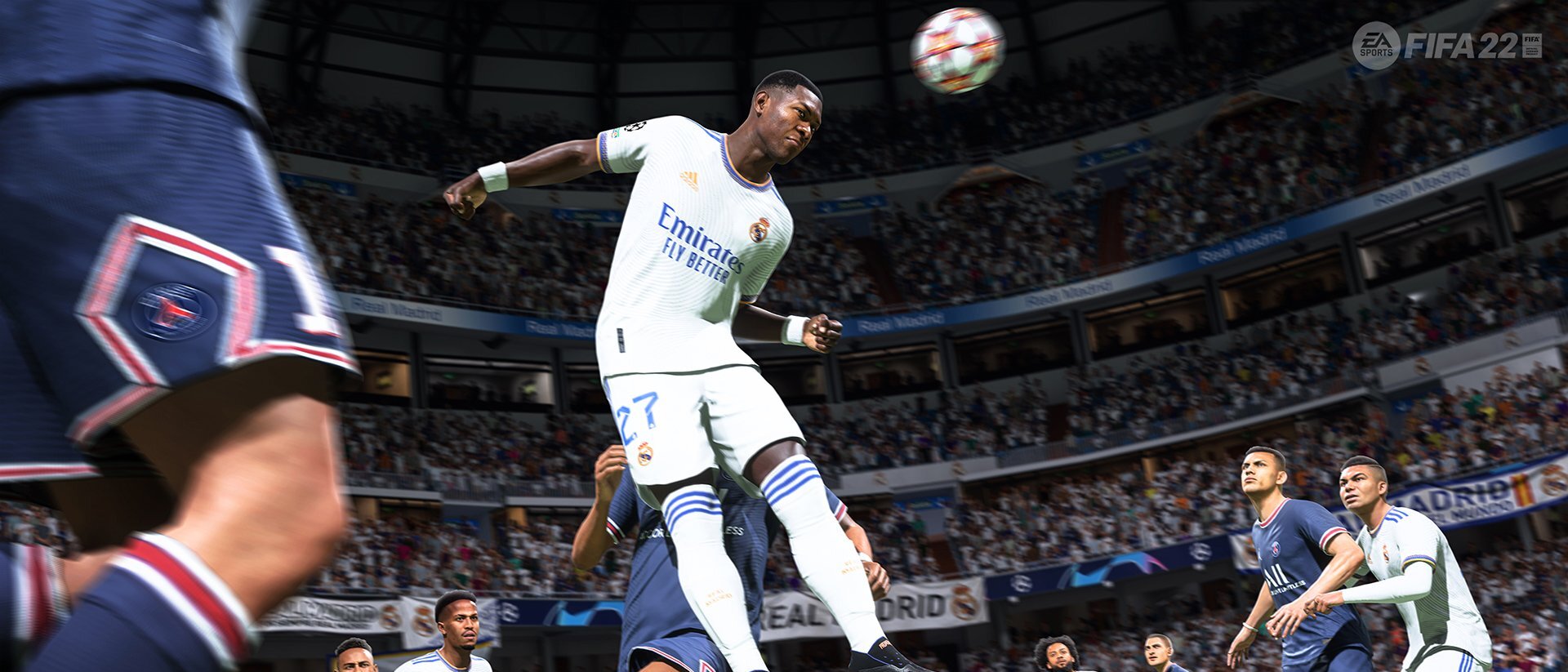TechRadar Verdict
FIFA 22 breathes new life into the series’ once-familiar gameplay with the addition of HyperMotion technology, and makes well-intentioned strides to refresh its most dated modes.
Pros
- +
Gameplay overhaul
- +
Visually authentic
- +
Refreshed Career mode
Cons
- -
Superfluous new mechanics
- -
Microtransaction overload
- -
Cluttered menus
Why you can trust TechRadar
Time played: 20 hours
Platform: PlayStation 5
Especially in recent years, new FIFA games have often felt like developer EA’s attempt to flog an old car disguised with a fresh lick of paint. It was a pleasant surprise, then, to discover that FIFA 22 – the 29th installment in this weathered series – finally bucks that trend.
Thanks to a series of genuinely welcome improvements to both visuals and gameplay, FIFA 22 feels like a decidedly different offering from its predecessor. It’s not without the same issues that have plagued the franchise for several years, and a few of its supposed enhancements still feel like superficial additions, but this is the first soccer simulator that truly looks and plays like a next-generation experience.
FIFA 22 isn’t quite a brand new car, but it’s certainly a heavily updated model worth investing in for those with the right hardware.
FIFA 22 release date and price
- What is it? The world’s most popular football simulator
- Release date? October 1
- What can I play it on? PS4/5, Xbox One/Series X, Nintendo Switch, PC
- Price: Standard edition is £69.99 / $69.99 / AU$109.95 on current-gen
The beautiful game in motion
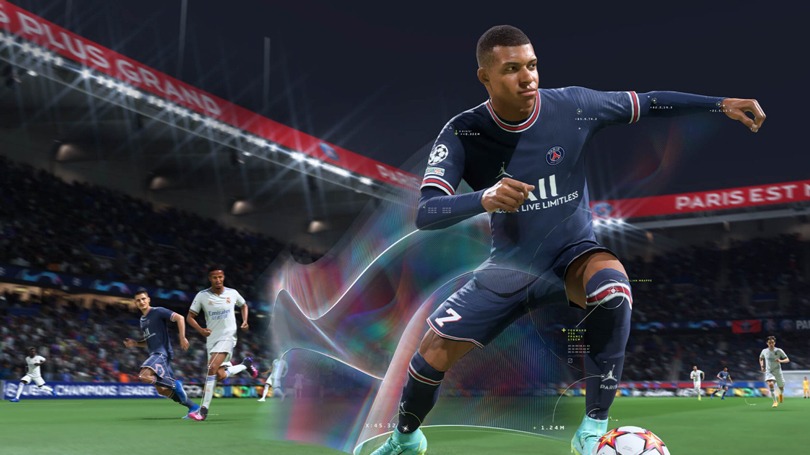
Let’s start by outlining what’s changed in FIFA 22. The biggest addition to this year’s game is the introduction of HyperMotion technology on next-gen consoles like the PS5 and Xbox Series X. Basically, EA motion-captured the movements and behaviors of players in real-life football matches and converted them into new animations – all 4,000 of them – for FIFA 22.
We’ve seen the developer lay claim to a shake-up of FIFA's visuals before (on an almost annual basis, in fact), but this year’s game really does benefit from the enhancements brought about by HyperMotion’s inclusion. Player likenesses, behaviours, reactions and interactions with one another are more realistic than ever, both on and off the ball, while even the football itself has had a physics-focused overhaul.
Goalkeeper behaviors and save animations are particularly improved. Every shot seems to result in a different type of save, with keepers spilling the ball, rushing to collect it, punching it out of the air and tipping it over the bar in ways we’ve never seen before in a FIFA game. This all adds to the unpredictability of a match and goes some way to eliminating that lingering feeling of mastery that came with learning how a goalkeeper would respond to certain scenarios in previous entries.
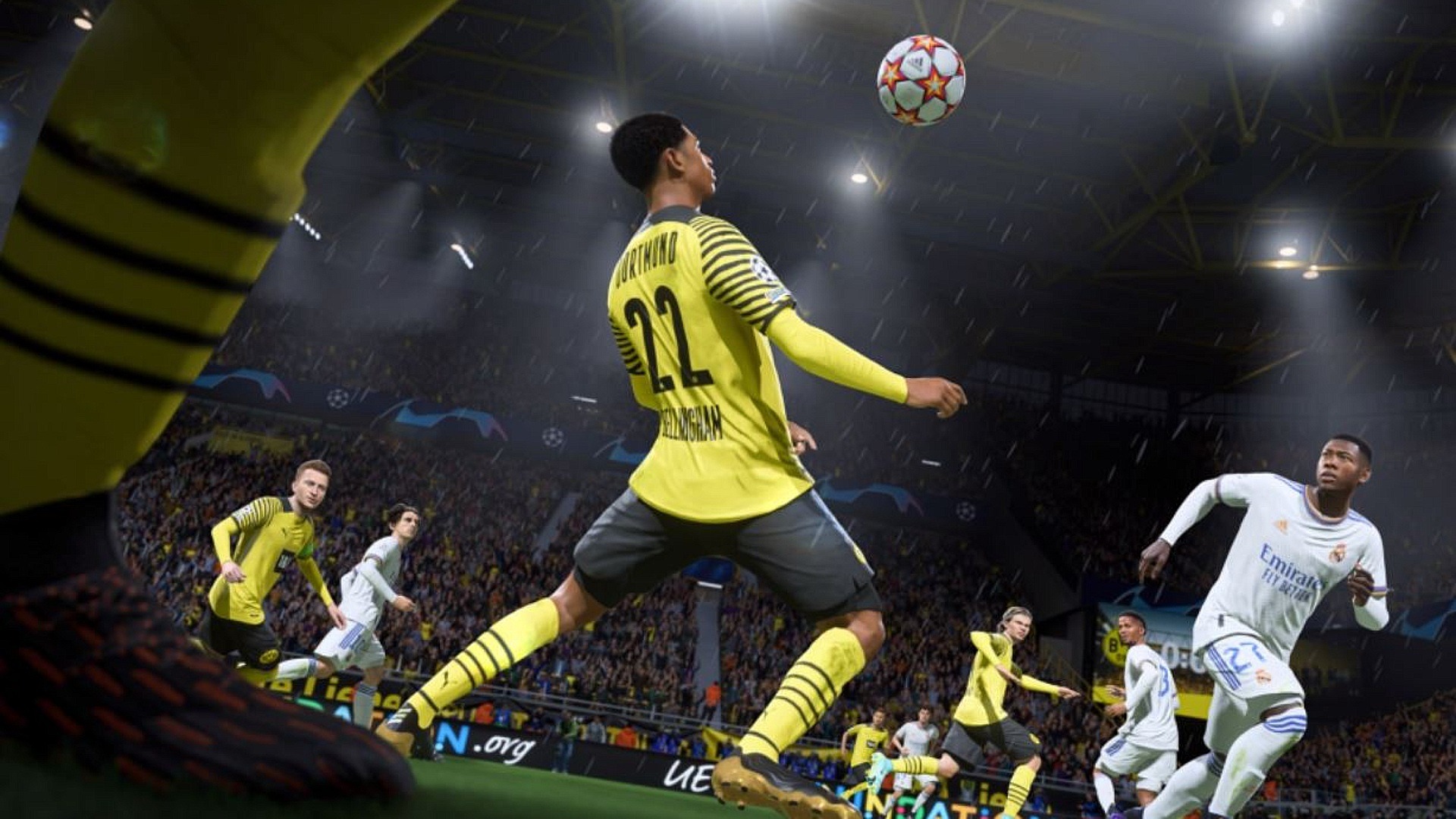
As such, HyperMotion has a big impact on gameplay, too. FIFA 22 is a much slower game, everything feels heavier this time around, but in a good way. There’s a real weight to players and the ball, which makes passing and, in particular, dribbling a more rewarding experience. There’s still nothing better than putting a defender on their backside with a fleet-footed winger and, this year, center-halves hit the deck with pleasing force – the bad ones, anyway. Gameplay also seems more physical, with fewer fouls given and greater opportunity for free-flowing, end-to-end matches.
On a purely aesthetic level, FIFA 22 is also the prettiest installment so far. Much has been made of the game’s hair graphics – which are, admittedly, even more impressive than last year – but less has been said about its equally realistic sweat effects and shiny bald heads. Sure, the degree of fidelity isn’t consistent across every player in the game, but there’s enough regular eye candy to justify FIFA 22’s next-gen price hike.
Less is more

As for the game’s other major gameplay additions, it’s a mixed bag. FIFA 22 doesn’t waste time letting you know about them, either. Right from the get-go, you’re dropped into a bizarre opening sequence that sees you build a character – an avatar you’ll be able to use in various modes throughout the game – who then spends the day in Paris meeting the likes of David Beckham, Eric Cantona, Anthony Joshua, Lewis Hamilton, Thierry Henry and cover star Kylian Mbappé.
The latter pair walk you through a PSG training session, where you’re taught how to use FIFA 22’s main new mechanics: timed runs, icon switching and knock-ons. The former is a smart but elaborate new feature that allows you to tell a teammate when and where to run, though like timed finishing before it, it’s something that takes a while to master, and you’ll likely happen upon using the feature by chance rather than deliberately orchestrating an attack using multiple players.
Icon switching – where you adopt control of the ball receiver – is difficult, too, particularly amid the fast-moving pace of a match. When you get the combination of these two mechanics right, it’s undoubtedly rewarding, but it’s hard to imagine many players using either on a regular basis.
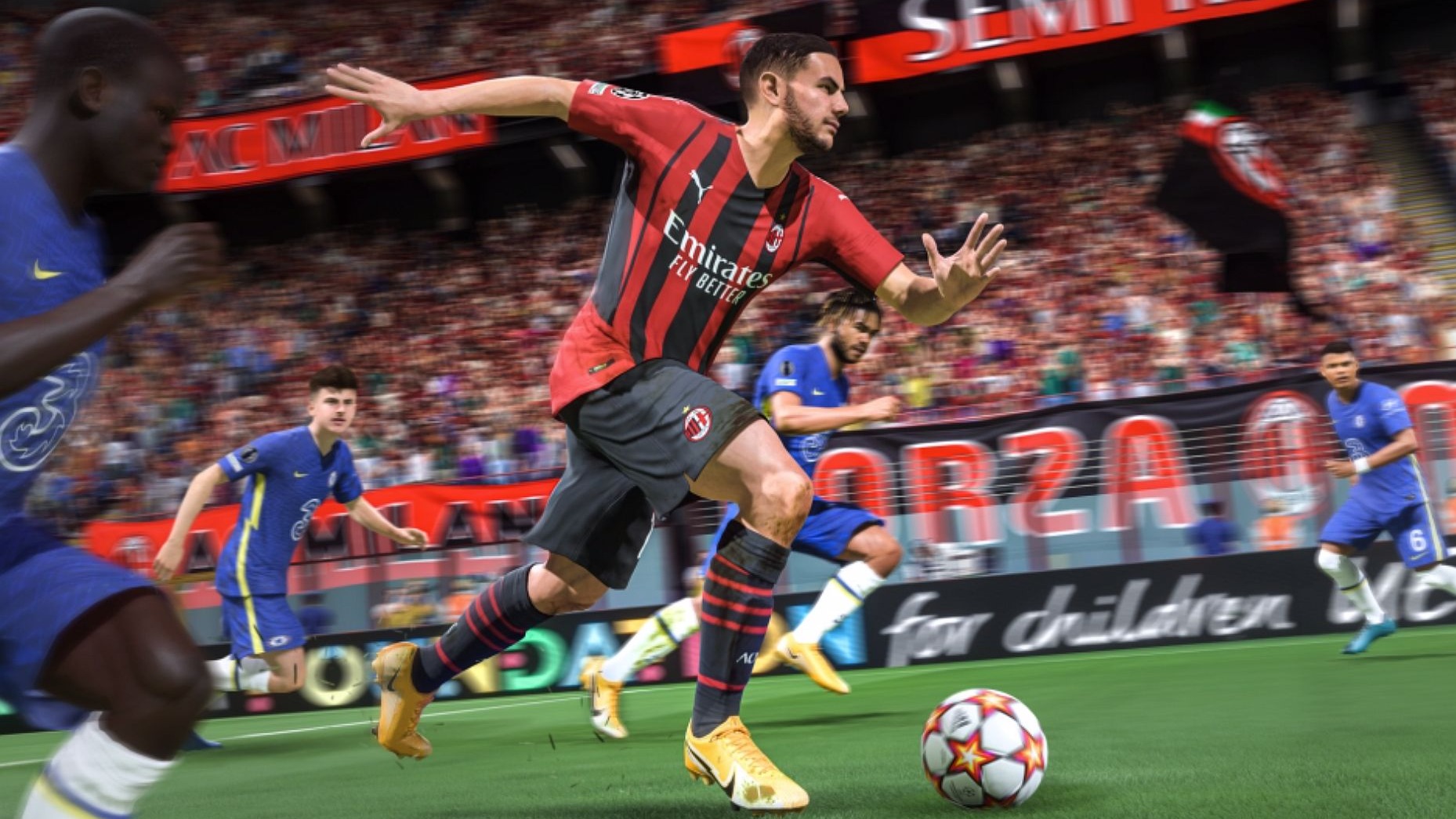
We also found that, when not pro-actively using features like timed runs, our AI teammates made fewer runs than they otherwise might do – as if EA were dangling the feature before our eyes. This didn’t negatively affect the experience too much, but it wouldn’t come as a surprise to learn that the game encourages you to make use of its new mechanics by conversely punishing you for not doing so.
Inexplicably, this introductory sequence also includes a tutorial on knock-ons, labeled here as a new feature but a skill that, by and large, has been available in several previous entries in the series. Sure, it’s now possible to move the ball forward a little faster than before, but this is by no means a brand new mechanic, instead another example of EA’s tweaking an existing feature under the pretense of innovation.
As we’ve come to expect from new FIFA games, then, most of these additions feel like superfluous upgrades – but that’s not really a criticism. FIFA 22’s gameplay is already good enough without them, and it’s hard to argue that any one of timed runs, icon switching or knock-ons make the experience worse.
Career highlight
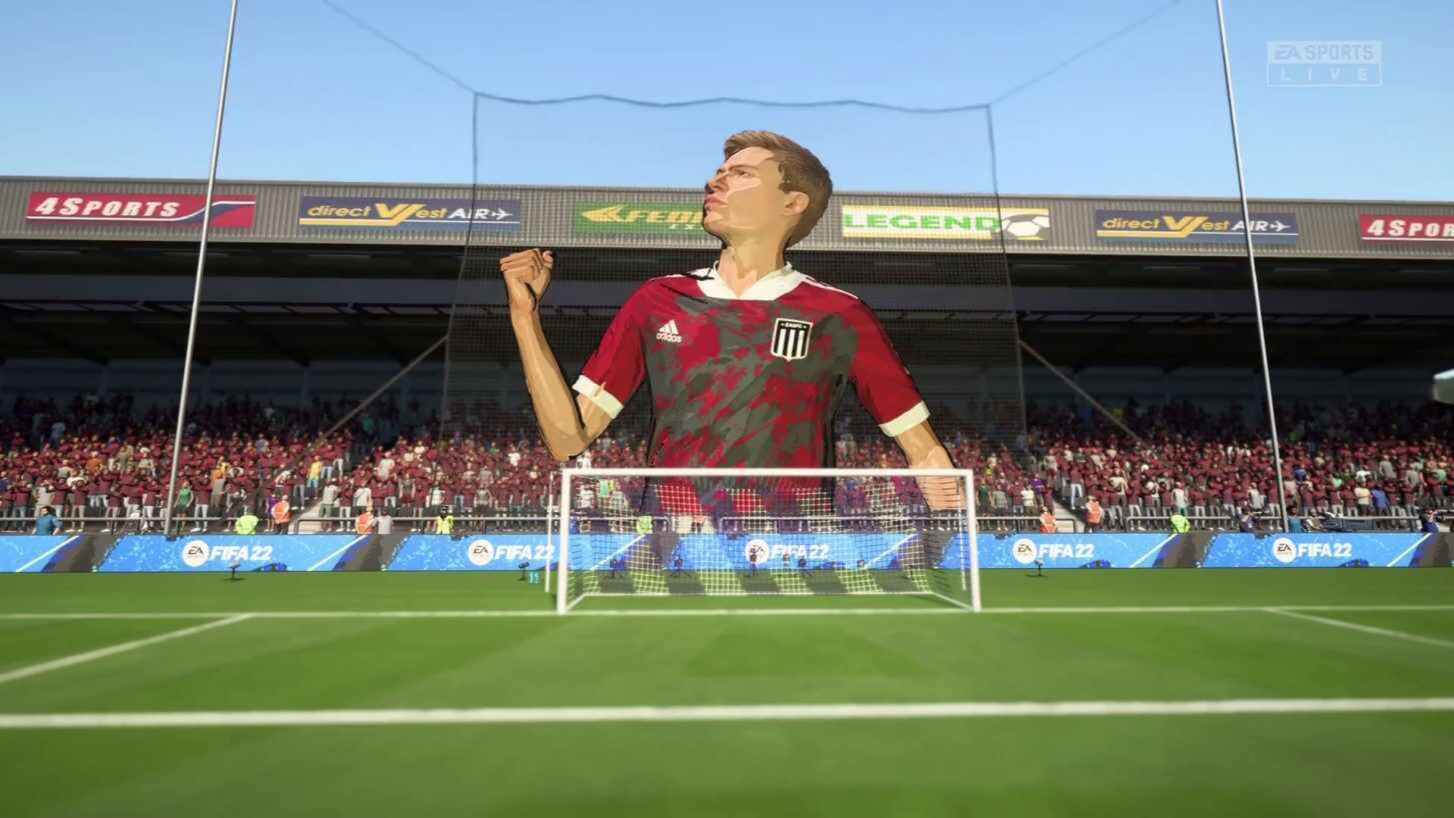
For many, the more exciting updates are to be found in Career Mode. For the first time ever, you’re now able to create your own team, crest, kit and stadium from scratch, a long-awaited addition that works well in some places, and not-so-well in others.
For starters, you’re encouraged to enter a club name of your choosing, though the nickname options available – those used to describe your club by commentators in-game – aren’t exactly exhaustive. Many, admittedly, are designed to work as add-ons to place names with the same first letter (‘Raiders’ or ‘Vipers’, for instance), but there isn’t a great deal of choice here, a fact made especially frustrating given the inclusion of silly nicknames like ‘Cheers Geoff’ – really, EA?
Kit design options, however, are pretty robust. Templates are available from Nike, Adidas, Umbro, Jordan, Puma, New Balance and Hummel – please, for consistency’s sake, choose the same brand for your home and away kit – while stadium size, pitch layout and atmosphere, too, are all customizable.
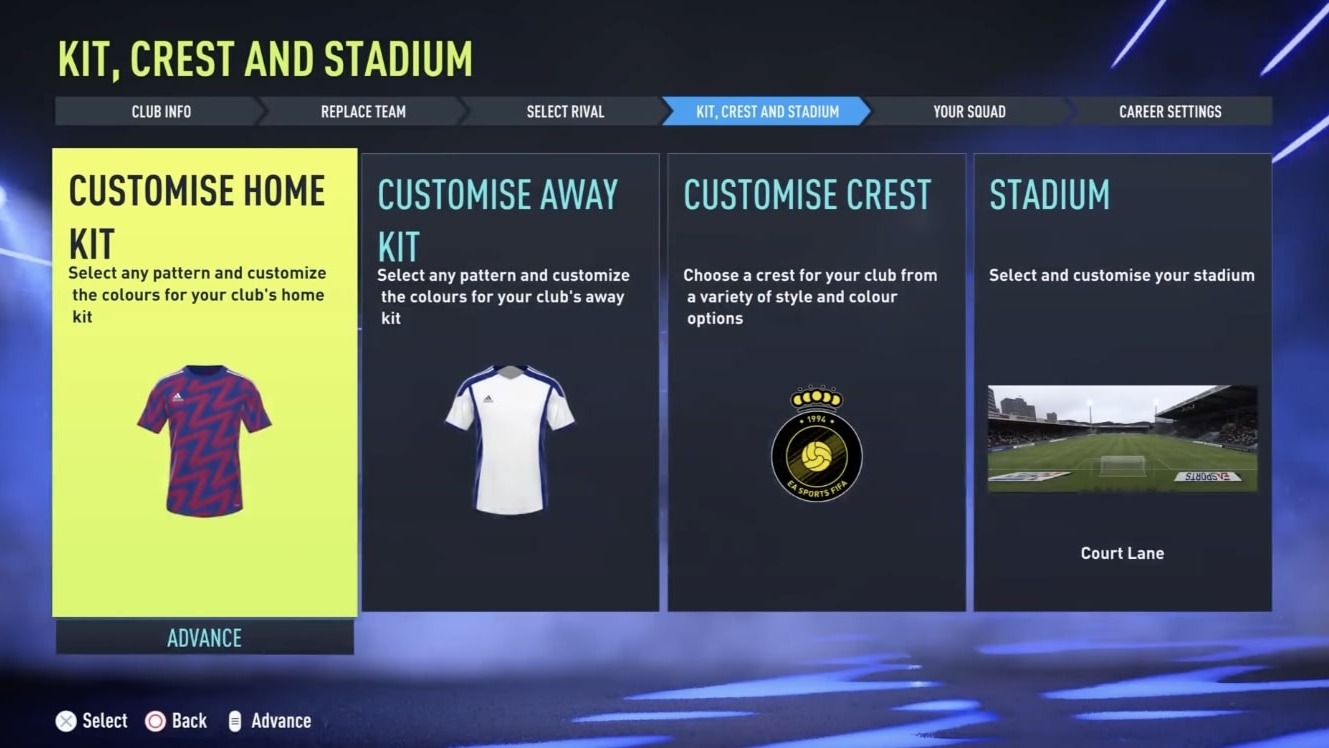
You’re then asked to select a real-life team to replace in a given league, whose position you’ll adopt moving forward, before selecting from a range of metrics like star rating and squad age to generate a team of fictional players. And herein lies the problem.
Sure, you can immediately head to the transfer market with your chosen budget to chop and change your squad with a few real-life stars, but for the most part, playing with EA’s selection of auto-generated players detracts from the whole magic of FIFA 22. The developer has clearly worked hard to offer players an authentic, visually immersive simulation experience when hitting the pitch with a squad of recognizable faces, but it’s just not possible to replicate that immersion with a bunch of coded personalities.
It would have been nice to see us given the option of cherry-picking a team of 20 real players from existing clubs – with the same parameters on age, budget and skill – right from the get-go, simply to make better use of EA’s obvious strides in graphical fidelity.
Still, it’s undoubtedly rewarding to see a team you’ve built from scratch ascend the echelons of league football, and the option to do so provides a welcome novelty in a mode that was in desperate need of refreshment.
As for the mechanics of Career Mode itself, work has been done to speed up the process of actually playing games. Skipping through the calendar, for instance, is a far quicker experience, transfer negotiations are easily breezed through and press conferences, though more detailed now, are simple to avoid. Still, EA’s obsession with training and preparing for matches remains an almighty nuisance.
The usual suspects
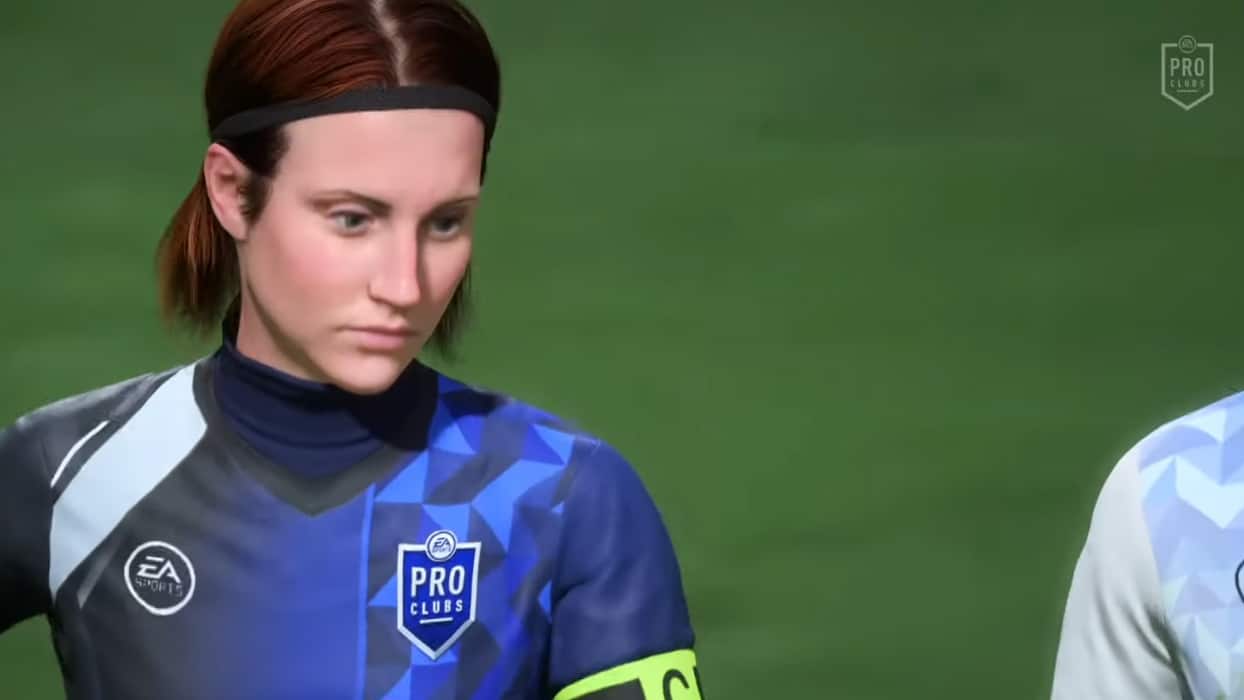
The rest of FIFA 22 is a case of small improvements. Volta returns with a few new modes and abilities to try, though they don’t do enough to make EA’s street football sim worth any more of your time than before. Pro Clubs players will find some additional perks to unlock, along with the introduction of female pros, while player careers now benefit from a new skill tree.
Ultimate Team, for its loot box-related sins, remains the game’s most addictive mode and is a relatively unchanged experience, save for a more forgiving and user-friendly Division Rivals progression structure and the splitting of FUT Champions into Play-Offs and Finals.
Yes, it’s still totally unnecessary to have theatrical pack openings for menial items like badges and tifos and yes, the mode still involves a lot of sifting through trash in order to find the gold, but Ultimate Team’s marked lack of additions won’t bother those who simply buy the game to collect cards and test their blood pressure.
Verdict
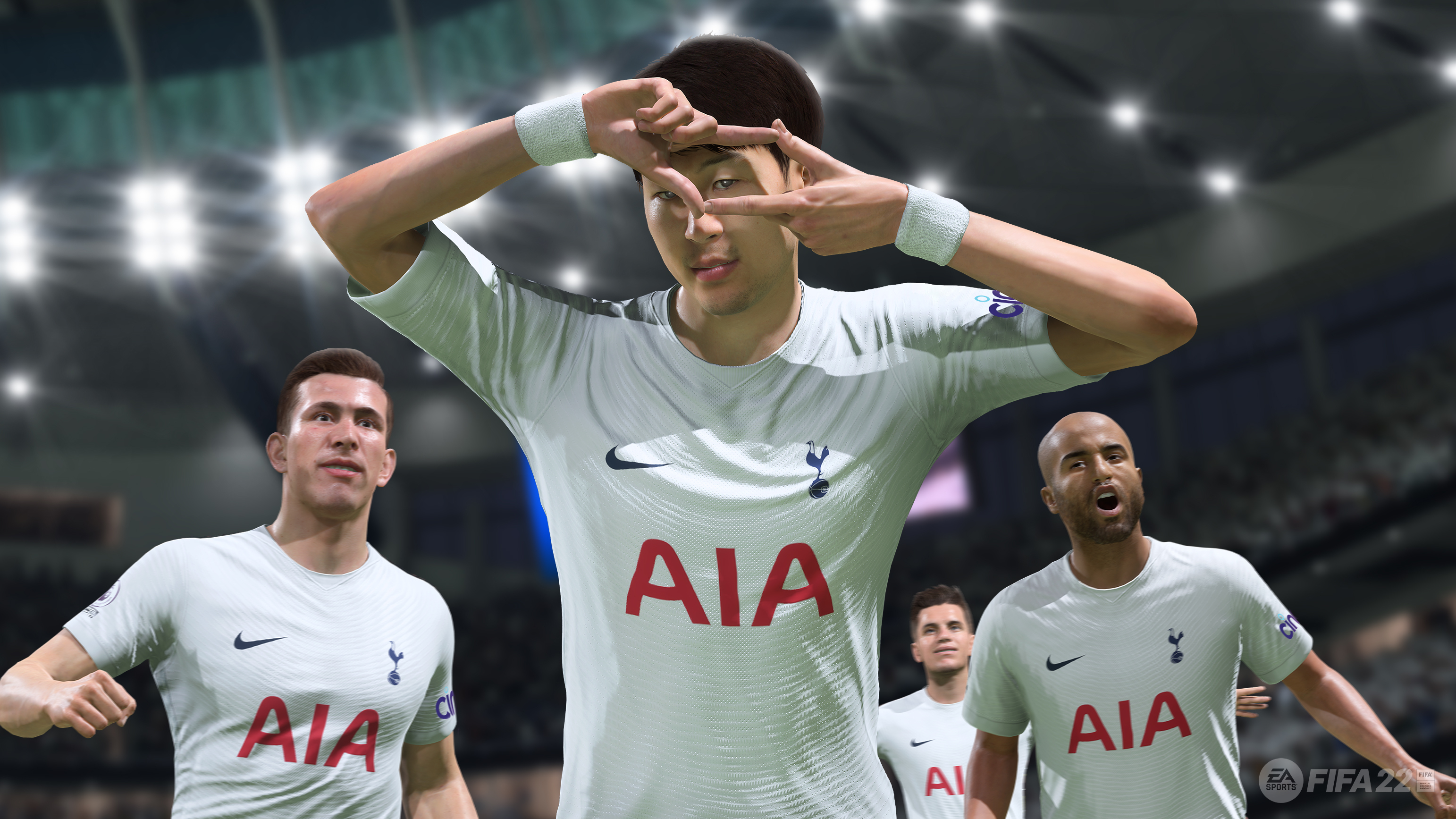
All in all, then, FIFA 22 is less about its new modes or mechanical bells and whistles and all about the actual experience of playing FIFA. HyperMotion is the biggest and perhaps only faultless improvement to this year’s entry, but it’s enough to propel FIFA 22 into the annals of the series’ very best games.

Axel is TechRadar's UK-based Phones Editor, reporting on everything from the latest Apple developments to newest AI breakthroughs as part of the site's Mobile Computing vertical. Having previously written for publications including Esquire and FourFourTwo, Axel is well-versed in the applications of technology beyond the desktop, and his coverage extends from general reporting and analysis to in-depth interviews and opinion. Axel studied for a degree in English Literature at the University of Warwick before joining TechRadar in 2020, where he then earned an NCTJ qualification as part of the company’s inaugural digital training scheme.
